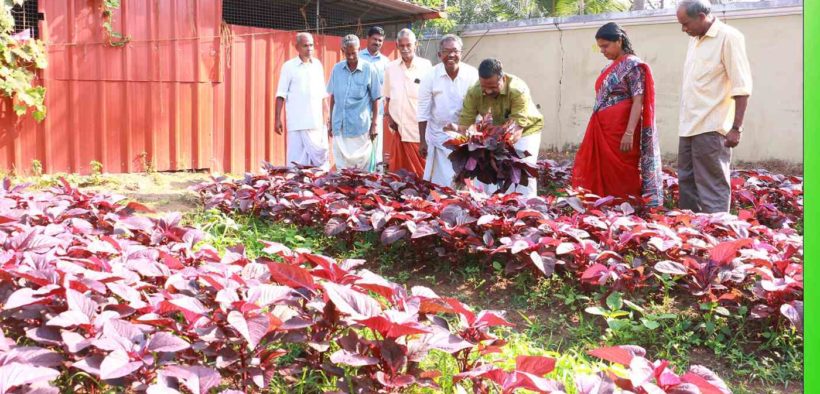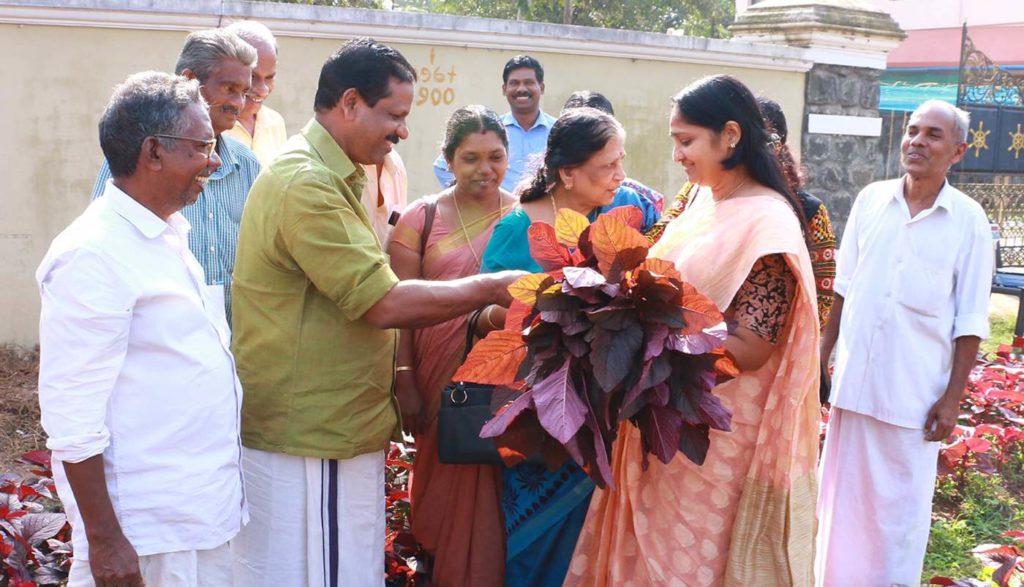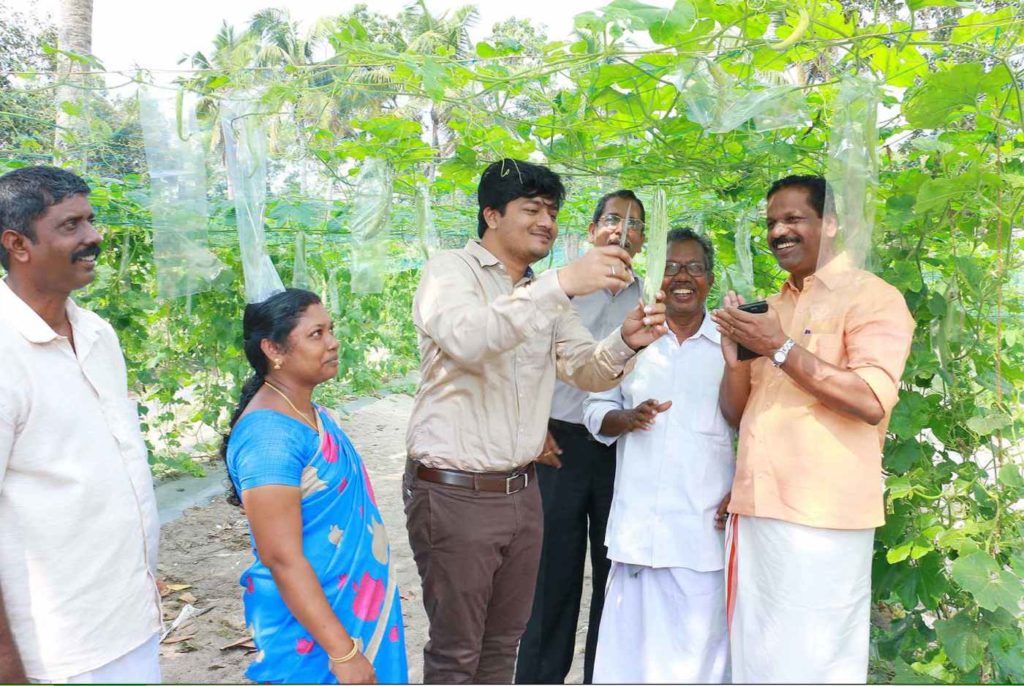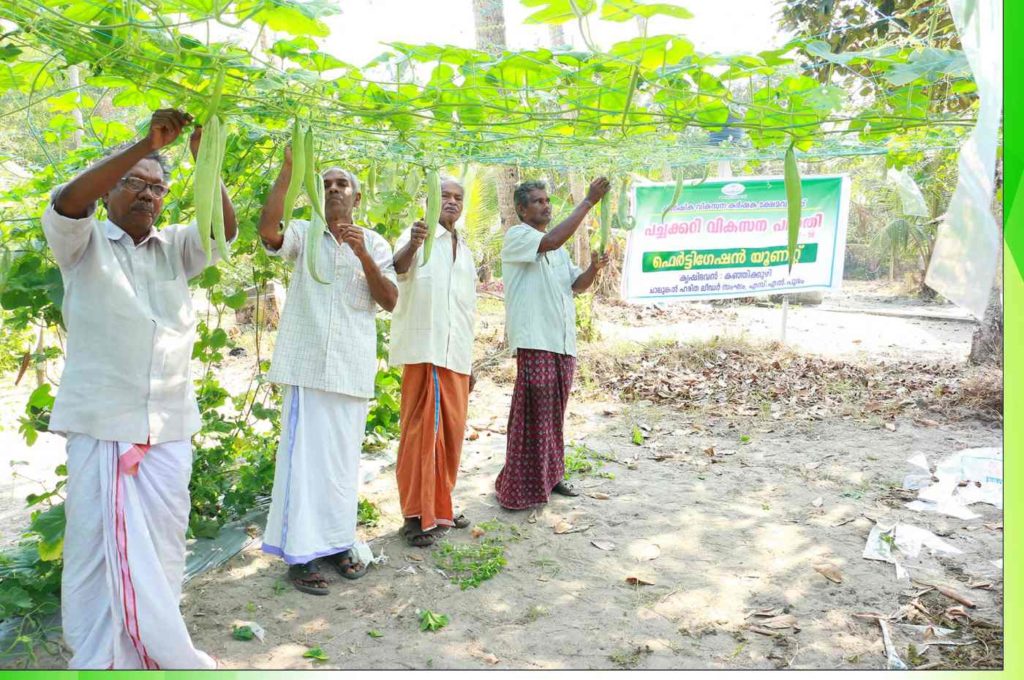Organic Paradise In God’s Own Country

A 70-year-old cancer survivor has set up and maintains around 100 matkas in South Delhi to provide water to the underprivileged
By Rajalakshmy R
Long before organic farming became a hip word, a little panchayat had set down this path, transforming every single household into a self-sufficient one. The idea of chemical-free vegetable cultivation was first mooted by then panchayat president P T Swathanthryam in 1995. This move was even more commendable back then as the state-driven People’s Plan Campaign (1996), kicked off in Kerala only in 1996, says Raju M G, president of Kanjikuzhi gram panchayat. The campaign is now a part of the Haritha Kerala Mission, through which the government intends to promote organic farming among all households in the state.
“We first conducted a survey to calculate the land owned by each family and to analyze the space available for each family to farm,” says Raju. Those with more land and those with an inclination towards farming were given more seeds and saplings, as well as manure, a practice that has endured to date. The seeds are purchased from Mannuthy, Palakkad, with help from the agricultural department; the money for this is allocated in the panchayat’s yearly budget.

With 18 wards and 8,600 families, the panchayat relies on 5 Kudumbasree members from each ward to distribute seeds and manure to the farmers. They also develop the saplings for the farmers; the yearly budget for the expense and maintenance cost for developing rain shelter for the vegetables is also included in the annual panchayat budget. “Almost 40,000 saplings are produced in each ward,” says Raju. Snake gourd, bitter gourd, ladies’ finger, beans, and sponge gourd are grown from saplings, while spinach is cultivated from seed. These five vegetables, excluding spinach, must be mandatorily cultivated by each family in Kanjikuzhi. The panchayat has also developed across variety bean of its own, popularly known as the Kanjikuzhi Payar.
Anandan A G, 71, started growing vegetables in 1996; in addition to the mandatory ones, he also grows spinach, cucumber, and winter vegetables such as cabbage and cauliflower. Now, he, along with 20 other farmers, also cultivates flowers for Onam; they are guided by Thrissur-based Sreelatha, who is part of the faculty at Kerala Agricultural University. “I’ve doing flower cultivation for two years now,” says Anandan. “We have a cooperative bank in Kanjikuzhi that provides financial support to farmers. Last month, the bank organized a tour to Vattavada in Idukki; we learned about tea cultivation, and we shared our farming techniques with 3,500 farmers there. We cultivate every vegetable except garlic and potato.”
“WE HAVE A COOPERATIVE BANK IN KANJIKUZHI THAT PROVIDES FINANCIAL SUPPORT TO FARMERS . LAST MONTH, THE BANK ORGANISED A TOUR TO VATTAVADA IN IDUKKI; WE LEARNT ABOUT TEA CULTIVATION, AND WE SHARED OUR FARMING TECHNIQUES WITH 3,500 FARMERS THERE. WE CULTIVATE EVERY VEGETABLE EXCEPT GARLIC AND POTATO.”
Anandan A G – Farmer
The cooperative banks have put forward a new initiative known as ‘open school’; a six-week course, it teaches farmers everything from the basics of cultivation to marketing techniques. Anandan, who used to develop equipment for silk cultivation earlier, is a busy farmer these days; he also has the added duty of collecting seeds for other farmers in the panchayat. He travels to places like Pollachi, Mannuthy, and Kumarakam for acquiring hybrid seeds as well as for preserving original seeds.”We mainly use cow dung and chicken manure for our vegetables, only farmers who cultivate vegetables in grow bags have to include a bone meal in their manure as our soil is already enriched with phosphorus,” says Anandan, who earned INR 4 lakh from his farm alone. “I am able to lead a healthy life even at this age, only because of growing my own, organic food.”

Roshni Sunil has been tilling the soil for only four years now, but she has already won three awards, including the district award for best organic farmer. “It’s fulfilling to both have access to chemical-free food and to generate an income from farming. Patients who come to Mathilakam for cancer treatment approach us for vegetables,” she says, adding that the Krishi Bhavan provides financial support for farmers (INR 30,000 for 1 hectare) to encourage cultivation in barren lands. One of the difficulties the panchayat faces when it comes to farming is that the soil is very sandy in nature and does not retain water. “We do face difficulties with extreme heat during summers. Then, we rely on borewells and ponds to water our fields,” explains Raju. Surplus produce, leftover after every family’s daily needs, is sold at the gram panchayat’s Public Distribution Stall with the help of the Kanjikuzhi Development Society.
The cooperative banks have put forward a new initiative known as ‘open school’; a six-week course, it teaches farmers everything from the basics of cultivation to marketing techniques.
The state agriculture department also sells its produce. Some of the farmers have even have set up small stalls of their own. “If we have more items to be sold, we send it across Ernakulam, Alapuzha, and Kottayam. Storage is not an issue as we have many organic stalls around us, especially in Ernakulam. There is literally no wastage,” explains Raju. The panchayat has allocated INR 27 lakh for organic vegetable farming this year. “We equip a farmer with seeds, fertilizers, and subsidized wages,” he says. The agriculture department honours farmers for their efforts every year, and since the awards were instituted three years ago, Kanjukuzhi panchayat has always retained the top position for the best panchayat in organic farming.

Also read about
BRINGING CANCER CARE TO THE DEPRIVED
















